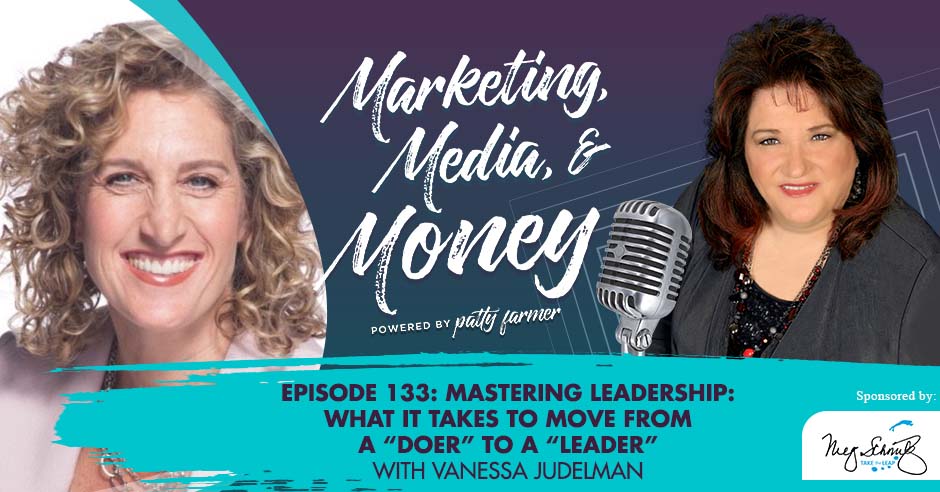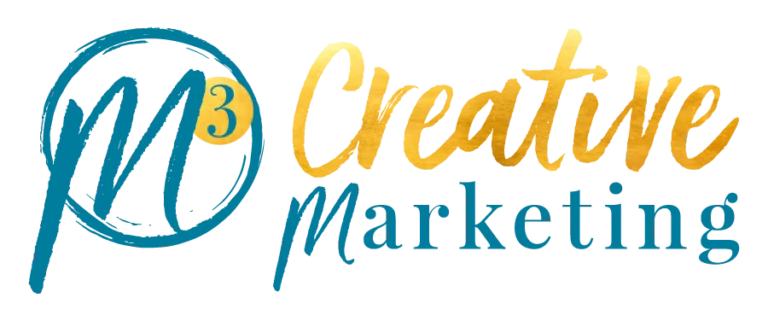
Click on the icon to listen to this episode on your favorite podcast platform.
Entrepreneurs are special and unique. To make a business fly, it takes a lot of courage and perseverance. The starting point is always self-awareness. Share on X
When you move from being a doer to a leader, you have to think strategically. Thinking about your time and priorities is part of it. Share on X
Be strategic, think clearly about balancing your time, and focus equally on your profit and process. Share on X
Vanessa’s Gift: Leadership Resources
Vanessa’s #1 Marketing, Media & Money Strategy
DID YOU LIKE THIS EPISODE? PLEASE GIVE IT A RATING AND REVIEW
About Vanessa Judelman
 Vanessa Judelman (hue del man) is the President of Mosaic People Development. For over 20 years, Vanessa has been helping clients to develop leaders who inspire great results. She is a speaker, facilitator, leadership consultant, author, and certified executive coach.
Vanessa Judelman (hue del man) is the President of Mosaic People Development. For over 20 years, Vanessa has been helping clients to develop leaders who inspire great results. She is a speaker, facilitator, leadership consultant, author, and certified executive coach.
Having worked “in the trenches” herself as a leader, she teaches her clients a very practical approach to leadership that she has used to develop her own high-performing teams.
Over the years, she has trained and coached thousands of people to transition from “doers” to leaders. She works with leaders to give them the tools and strategies they need to feel confident, be more self-aware, be team-focused, and be strategic.
Vanessa has had the privilege of developing leaders in organizations like Campbells Soup, The United Nations, HelloFresh, SickKids, and the Bank of Montreal.
Resources and Important Links
- Mosaic People Development
- Mastering Leadership: What it Takes to Lead in Today's Fast-Paced World
- Vanessa Judelman’s Facebook
- Vanessa Judelman’s LinkedIn
- Vanessa Judelman’s Twitter
- Vanessa Judelman’s Instagram
- Leadership Style Quiz
- Gift: Leadership Resources
- Free Marketing, Media, & Money Assessment
- Check Out Our Sponsor
Grab Your Free Marketing, Media, & Money Assessment
Meet Our Sponsor
The Marketing, Media, & Money Podcast (and magazine) would like to thank our sponsor Meg Schmitz, founder of Take the Leap franchise consulting company.
The franchise industry is booming as people look to diversify their income streams with essential businesses, without having to quit their day job. If you have ever considered what it would be like to own your own business with the security of a solid brand behind you, schedule a call with Meg. The conversation is free, and the insights are priceless. https://MegSchmitz.com
Mastering Leadership: What It Takes To Move From A “Doer” To A “Leader” With Vanessa Judelman
I'm excited you are here with us. We are going to be talking about a subject that is near and dear to my heart. We are going to be talking about mastering leadership and what it takes to move from being a doer to a leader. We are going to dive deep there with our guest. This is going to be a day you want to make sure you have a pen and paper because she is going to give you some writer downers.
Let me tell you a little bit about our guest. Our guest is Vanessa Judelman. She is the President of Mosaic People Development. For several years, she has been helping clients to develop leaders who inspire great results. She is a speaker, facilitator, leadership consultant, author, and certified executive coach. Having worked in the trenches herself as a leader, she teaches her clients a practical approach to leadership that she has used to develop her own high-performing teams. Over the years, she has trained to coach thousands of people to transition from doers to leaders. She works with leaders to give them the tools and strategies they need to feel confident, be more self-aware, be team focused, and be strategic. Thank you so much for being here with me, Vanessa.
It is lovely to be here with you.
I am excited. From being a doer to a leader, I love that topic. Especially if you are transitioning from having a job or being in corporate, now all of a sudden you work for yourself, we are used to doing. We don't realize that a lot of times, being a leader starts with learning how to lead yourself. You have to lead yourself before you can develop other leaders.
Let's jump right in. Do you think there are a few things people need to keep in mind? When they are transitioning, whether it is from corporate, they are a serial entrepreneur, or maybe they have a brick-and-mortar business. I know that you have some pillars that you work with, but what are some of the things that they need to know when they are doing that and going from that doer to a leader?
I was from a doer to a leader myself. I worked in corporate for several years. I have been running my own business for many years now. I get a lot of calls from people who say to me, “Vanessa, I'm thinking of being an entrepreneur. I'm thinking of starting my own business. Can you share with me what it is like?” I always say to them, “You have to wear a lot of hats, and you got to move.”
If you are not willing at the beginning to wear a lot of hats, move and take action, maybe being an entrepreneur is not for you. You got to hustle, especially at the beginning. I have been in my business for many years. I'm quite established as a leadership consultant coach, but I still have to move things forward and take action. Entrepreneurs are special and unique. To make a business fly, it takes a lot of courage and perseverance.
The starting point is always self-awareness. It is about understanding your why. Why do you want to be an entrepreneur? Who is your key audience? Who do you want to serve? What is important about that to you? Leadership and running a business do take a lot of perseverance. The work that I do is part of my spiritual purpose. It is connected to the purpose of my business. For a lot of people, if that connection isn't there, the drive to persevere won't be there either.
When I talk to a lot of people who are thinking about transitioning to being entrepreneurs, I feel like the pattern that I have seen, what I hear over and over again, is that they want time freedom. Time freedom is important to them. The kicker is they all want time freedom, and a lot of times, for them, that means getting to do what they want to do when they want to do it.
Before, they used to get a paycheck, and now they don't. I find that the balance and being aware is that you have to be self-motivated. You have to be able to motivate yourself to get things done because you are not answering to somebody else. You are the CEO. That means you have to be able to motivate yourself. As my own boss, sometimes, I love when I can say, “I'm giving myself the day off. I'm going to look at my calendar. I need a Patty day.” I booked that in.
I know that in order to do that, what is the payment for that? Maybe that means I have to work a few extra hours somewhere else. Maybe it isn't. I do know that a lot of times, I will see, and they will say to me, “Patty, I want to take the summers off because my kids are at home.” That is great, but what are you doing that is going to allow you to do that? There are a lot of things there about being self-motivated if you want time freedom. Do you hear that as well?
Not only do I hear that, but I live that as an entrepreneur. As a mom, I have two boys. It makes me laugh because I'm thinking back to when I started my business. Friends of mine who happened to be not working at the time for different reasons were like, “Do you want to meet for coffee? Do you want to meet for lunch?” I had to say to them, “No, I'm working. I'm an entrepreneur. I'm running my own business. I got to hustle. I can't meet you for coffee.”
It is about putting boundaries in place, looking at your calendar, and saying, “If I want to pick up my kids at 3:30, I don't book clients at 3:30. Maybe I’m back to work at 4:30.” When I think about being an entrepreneur and moving from a doer to a leader, I think about the three Ps of prioritization. As you grow as an entrepreneur, not only are you taking care of yourself, but you are going to start building a team. You have to know how to develop a team.
One of your priorities has to be your people. You have to focus on the process. If I want to have the freedom to pick up my kids at 3:30 or not work on Fridays, you have to put processes in place to give you the freedom to do that. The third P that I like to focus on is Profit. You have to be profitable as an entrepreneur if you want to keep your business running.

Mastering Leadership: One of your priorities has to be your people. You have to focus on the process. You have to be profitable as an entrepreneur if you want to keep your business running.
A lot of times, they don't think about that. There were certain things that I put into place, but it took time. I knew that I wanted time freedom. That is the most important thing to me. I had to ask myself, “What does that look like?” I had to go through a few years of having a few hours here where I was busy and learning what the most creative times for doing revenue-generating activities are. It is different for everybody. I had to find that balance myself and become aware of that. Now that I have done the work and have it in place, I don't work on Fridays. I don't do clients on Mondays.
I don't work on Fridays. That is Patty time. That allows me to be able to show up and be fully present with my family on the weekends. It was also not taking clients on Mondays. I work on Mondays. It is probably one of my hardest working days, but it lets me prep. I do all my prep work for my clients. I book off two hours in the morning for myself and my business. Tuesday, Wednesday, and Thursday are busy days for me with my clients, facilitating masterminds, and the other things I do.
That balance for me has been wonderful. It didn't come from day one. I had to figure out what worked for me. Part of it is figuring out what works for you. We are all different. I get up early. I have global clients. Sometimes I'm on the phone with clients at 4:00 in the morning because they live in other countries. It all depends on what business you are at. Are you a national, local, global business, or whatever the case may be? You have to be able to balance that. I love that you are saying that you need to balance that out and be aware, but equally, people, profit, and process. You can build the process if that is what you want, but you have to know that it is not going to happen on day one.
The Process is one of the three Ps. When you move from being a doer to a leader, you have to think strategically. Thinking about your time and priorities is part of thinking strategically. Putting a process around your calendar in place is critically important. People can do that anytime, whether they have been in business for 1 month or 10 years.
On Fridays, I don't book clients, but it is my day to work on the business, not in the business. You have to think about your lifestyle and priorities. That is the process piece. The other thing around the process is if you have a team, schedule time in your calendar to meet with your team. I like to do Monday mornings. On Monday morning, we look at the calendar and what is coming up for the week and say, “This needs to be done. What do you need from me? What do I need to get from you?” Everybody is aligned on the plan for the week.
Having a process is important. One of the things that I learned from me, from a process point of view, was my inbox. One of the most important things that I learned was that my inbox is everybody else's agenda for my day. When I get to my desk, I never look at my inbox first. I look at my calendar first to see what my day is, look and see what it is that I need to do, and get prepared for that. I do get to my inbox, but I have found this for me, and I have taught this to my clients, too. If you let your inbox become your agenda for the day, you are not a CEO. You are a firefighter. You become a firefighter instead of a CEO.
It was hard at first. Now it is easy to put rules in place in my outlook and stuff. I get the most important things. There are things that you can do, but it is a process. It wasn't a process I had in the beginning. Remember in the day when multitasking was a good thing. You could put that on your resume, and everyone was like, “You can multitask.” Now, nobody wants anyone to multitask. We want you to be able to focus. There has been a shift in that. That is important.
I want to ask you a question. One of the things I read on your website that I loved is when you said, “A true leader should be able to answer this question easily. What am I getting paid to do?” That is such a great question because you could ask 100 people and get 100 different answers. As a true leader, what are you getting paid to do? I want to ask you what people should be thinking. The reality here is, what am I getting paid to do? Maybe they could use some clarity around that. What made you say that? Where did you pull that from? What was the thing that motivated that?
It is one of my favorite questions to ask people. The reason I started asking people that is because I find leaders and entrepreneurs are overwhelmed all the time. People kept saying to me, “Vanessa, I'm busy. I don't have time to do this and that. I don't have time to coach my team.” I started asking, “What are you paid to do?” What that question does is it gets people laser-focused on their core priorities.
The next step I would say to people is, “Once you are clear on what you are paid to do, now what I want you to do is write down everything on your to-do list. You are going to check. Is this item on my to-do list align with what I believe I'm paid to do?” When I did that activity for myself, I realized I was doing a lot of administrative work. I say to myself, “As an executive coach, business owner, and president of my business, am I paid to do that?” No. That is what triggered me to say, “I need to bring on a virtual assistant.” That was the first person I brought on my team. I made a list of everything that was not aligned with what I paid to do. I said, “Here is your job description. Go.” That was a game-changer.
Sometimes I find myself going back and doing that exercise over again because you get clear, and things happen. All of a sudden, a little bit of time goes by, and you find yourself doing those tasks again and how they got back in there somehow. I have done that when you are building a team because there are things you need to be doing. There are also things that not only shouldn't you be doing, but you are not very good at them either. They are not your core competencies. There are things you don't like to do. If you don't like to do it, it is going to go to the bottom of your to-do list anyway. Those are some important things.
I find that a lot of entrepreneurs have a hard time building teams. They don't know when to start, what they should do first, and how many I should bring on. When I had an office and a team, that was much easier for me for some reason. I don't know why. When I moved to a home office, I found that all the people that I outsourced to on my team were virtual.
I went through a period where I struggled with that. I had more turnover. I was finding myself having a lot of, “This person would throw this person under the bus.” They say that they didn't get this done because this person didn't get it to them. I realized it was because I didn't have the process of how we were going to work. When you were in the office, it was easy to walk into an office and have that meeting together.
I find that some people struggle with that, and more people are working from home now than ever before. Let's start first with somebody who is starting to build a team. I want to know if you have a team and you are struggling with it or now you want to add to your team. What are some things they should be thinking about that would make that transition or that jump for them easier?
When you are starting a team, you have to ask yourself, “Why? What is the reason that I want to bring someone on?” Let's go back to the activity I mentioned before. Clarify what you are paid to do. Write down a list of everything that is not aligned with what you feel you are paid to do. Create your first job description from that. It should be administrative tasks when you grow to a certain level. Maybe you outsource your social media.
You made a good point about understanding what you are good at. What is your unique brilliance? That is the advantage of being an entrepreneur, in my mind. I get to focus on my unique brilliance. I'm self-aware. As an entrepreneur, when you move from being a doer to a leader, you have to develop your self-awareness. You have to know, “What is my unique brilliance? What am I good at? What do I enjoy doing?” Make a list of all those things and everything you are doing that is not aligned with your unique brilliance and what you enjoy doing. That becomes a job description for somebody you want to hire.
I do social media. I could post on LinkedIn, go live on Instagram, and go on Canva and make pretty images. Is it my unique brilliance? No. Is it what I feel like I'm paid to do? Absolutely not. That is when I brought on another team member to help me with that. Number one is to identify your gaps. Your unique brilliance is not. Hire that person to fill those gaps. That is the people's side of it.
Onboarding them is a different issue. Motivating and delegating to them is all in that people pillar. The process pillar is when you onboard that person, you have to be clear about your expectations. Clarifying your expectations is one of the ways that you build trust with your people. A lot of leaders or entrepreneurs feel like, “I clarify my expectations too much. Are they going to think I'm a nitpicker?” I always say, “It is the opposite. It builds trust.”

Mastering Leadership: You have to be clear about your expectations. It’s one of the ways that you build trust with your people.
When someone is clear with you, you are like, “I could do that.” That is part of the people's side. You have to build trust with your team. You have to be respectful and loyal. You have to keep your commitments to them and they to you. You have to clarify your expectations. You have to listen. That is all about building that people side and the leadership part of your practice as an entrepreneur.
I'm also a coach, but I'm in marketing. It is a little bit different. One of the things that I have found for me is I like to work in my brilliance and hire other people to work there. I don't like to micromanage. That is important to me. That is not what I'm looking for. I'm looking to bring on a team that I don't need to do that.
One of the things I realized when I first started building a team was that because I didn't have the right process in place, I was usually the bottleneck. Once I delegated, I checked and marked it off. All of a sudden, I would be like, “Why haven't I got that?” I would ask, and they would say, “It is because we were waiting for you to give us this.” I’m like, “How long were you going to wait because we didn't set the expectations?”
Early on, I did have that, but I got out of that fast once I realized that it was costing me money. I have a firm commitment to myself that when I bring on someone, every single person, I give myself a period of time that whatever I am delegating to them. It differs from teammate to teammate. I have six people who work for me.
For each one of them, I have a period of time in my head. I don't necessarily tell them how long they have to be paying themselves. In other words, they are making me money, and it is thus paying for them. Sometimes you gotta onboard them. You have to teach them things and train them. They are not going to make that money back for you on day one, but that is the goal.
The other thing I realized as a leader was when I was looking at the things that were not my brilliance, I don't call those weaknesses. I call them opportunities. It is an opportunity for you to hire someone that can do those for you. That is an opportunity. Sometimes when you are looking at that list, it isn't necessarily somebody you need to hire. It could be somebody you can collaborate with. One of those things was I don't like to write content. I stopped blogging. I published a magazine instead because I didn't want to blog every week.
I made that decision, but I didn't want to do it. I had to ask myself, “What is the thing?” I have somebody who is a content creator for me. I tell her what I want she does. I look at it and make sure it is in my voice before it ever goes out. I spend a little bit of time having to change that. I'm clear about what that is. When I'm doing events, on the other hand, I like to collaborate with a copywriter because copywriters usually love it when somebody else is doing the marketing, and they write the copy.
Sometimes it tells you somebody you should hire. Sometimes it is an opportunity to collaborate. It depends upon which one it is. It does still come down to what the process is, who the people are, and profit. It does come down to those three things. That is important. You have another three things. You also have three pillars of effective leadership. What are those three pillars? I love 3 and 3. It is a good balance there.
Isn't that a marketing rule that we always do things in terms of threes? Marketing, media, and money is for me.
I always do things in terms of threes.
As you talk about your strength, I was an English major at university. I love to write. I always write my own blog every Friday. Here we are, two entrepreneurs and coaches, and we are all built and wired differently. I love hearing about how you are leveraging your strengths and your business and how I do it differently in my business based on my wiring.
To answer your question about the three pillars of leader success, you are onboarding people, you are an entrepreneur, and you are a leader as you build your team. Leadership is complex. It is extremely multifaceted. A lot of people don't realize that. The other thing about leadership that I have learned after developing leaders across the globe for several years is that most people, whether you work in corporate or you are an entrepreneur. If you work in a corporate, most people get promoted into leadership roles without any leadership development. If you are an entrepreneur, you start growing your team, but you have never had leadership development before.
The thing you have to understand is leading people's a different job than whatever you were doing before. Let's say you are an architect. You have been working with clients one-on-one. You are building a team of other people in your architectural firm. Leading those people is different than being an architect, what you were trained to do in university.
The three things I get people to focus on to break down the complexity of leadership are that you have to know yourself, manage your team, and lead your business. Knowing yourself is that whole piece around understanding your work style. All the stuff we talked about already, that self-awareness piece, understanding your strengths, weaknesses, and unique brilliance, is also about mindset. I know you talk a lot about mindset. Part of knowing yourself is understanding your mindset. What is blocking you from your success in your business? What is going to help you move forward?
The third piece around knowing yourself is trust and how to build trust in your team and understand some of those pillars. The manager team business is your job once you have people on your teams to coach and develop them. It is to build a high-performing team. These are things that most people are not taught to do.
The lead your business part is around leading and managing change. Think of all the changes that we went through during the pandemic. We all had to pivot our businesses. That is around leading and managing change. It is about prioritizing, delegating, and executing strategically. My goal in creating these two pillars is to help leaders to break down the complexity of everything they need to do as a leader and know what their job is. It is knowing yourself, managing your team, and leading your business.
For the audience, she wrote a book called Mastering Leadership: What it Takes to Lead in Today's Fast-Paced World. She also came bearing gifts too. She was generous in those as well. Can you share with us a little bit about those gifts that you have for them? People love gifts, and it perfectly leads to gifts because they want to know where those resources are going to get after everything you said and how they can put that into their business. Tell us a little bit about the gifts.
You can go to YourLeadershipResources.com. You can find hundreds of blog posts. I have blogged every Friday for the last several years on every topic related to leadership, whether it is how to get feedback to your team properly, how to delegate them properly, how to create a high-performing team, and how to prioritize. I got some videos and a nice leadership assessment. If you want to focus on that first pillar of knowing yourself as a leader, you can download a leadership assessment to take. I also got a link to my book if that is of interest. There are lots of stuff that you can dive into.
That is so incredible. Thank you so much. Vanessa, this is one of my favorite times in the show. I always love to ask my guest if you are going to narrow it down to one strategy, what would be the number one Marketing Media Money strategy to leave our guests with?
Be strategic, think clearly about balancing your time, and focus equally on your profit and process.
Thank you so much for being here with me, Vanessa. I appreciate it so much. You were generous in sharing your brilliance and giving us some resources. That was valuable.
Thanks. I loved our conversation.
Thank you to our audience. Thank you so much for being here week after week. I appreciate it for joining us. If you enjoyed this episode, please subscribe and review the show on your favorite platform. If you would like a simple answer to the question, "Where should I focus my time and energy to attract highly qualified ideal clients?" we invite you to take the Marketing, Media, and Money assessment.
In three minutes or less, you will know where you are excelling, where you need to make a few changes, and what those steps are to achieve massive results. You can go to www.M3BizQuiz.com. Thank you, everybody, for being here. Thank you, Vanessa. It was such a pleasure to have you on the show. We will see everybody again next episode.

